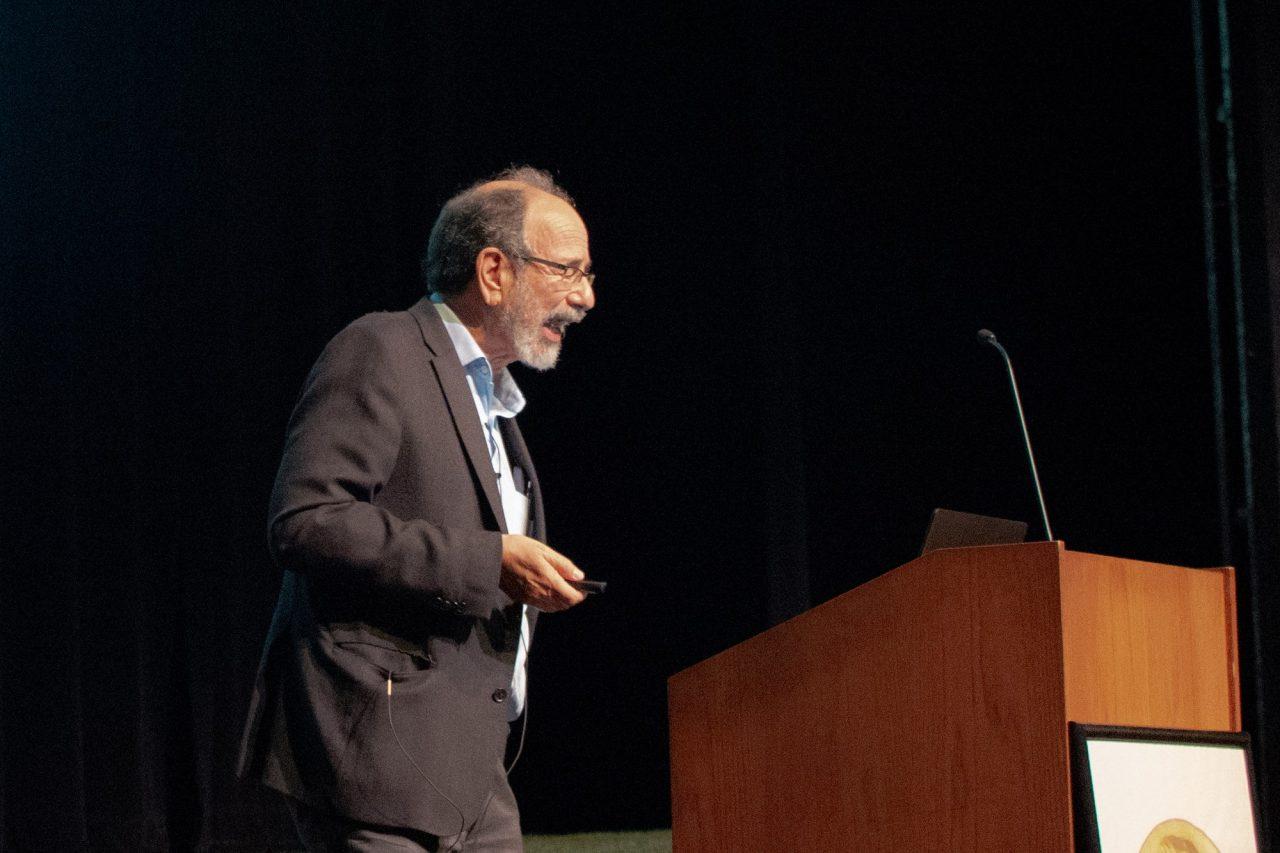Photo by Genevieve Humphreys
Alvin Roth, co-winner of the Nobel Prize in economics in 2012, spoke about his contributions to the field of economics to about 150 members of the Trinity community on March 29. Roth has been revolutionary in creating a new kidney matching system which has increased the number of kidney transplants performed across the world.
Throughout his career, Roth has been interested in markets that have no price, meaning the things he studies cannot be bought and sold, like kidneys.
Roger Spencer, professor of economics, is in charge of the Nobel prize program which aims to bring one speaker each year. Spencer was drawn to Roth’s work because of its humanitarian objective.
“He is an economist that is not stuck in an ivory tower and is out doing good for the world. I like to think all economists do good for the world, but that may be a bit of a stretch. But he actually saves lives like we just heard in the lecture. That is a fantastic thing for not only other economists to respond to but for other social scientists and students as well,” Spencer said.
Roth studied as an applied mathematician and operations researcher throughout college, becoming a game theory professor at the University of Pittsburgh in 1982. In his classes, Roth taught students about the top trading cycle, an algorithm for trading items without using money.
Roth used houses to demonstrate the algorithm. However, in the housing market, we do use money to exchange, which Roth’s students would remind him.
“I happily continued teaching that problem, but instead of using houses I used kidneys. I was just using it rhetorically to stop my students from informing me that we use money to sell houses. I had no idea it could be done,” Roth said in his lecture.
People can donate one of their two kidneys to someone else and live a healthy life. However, in kidney donations, the donor-recipient pair must have matching blood types for a donation to be successful. Before Roth, if a donor and the recipient weren’t blood type matches, the recipient would continue to wait on the donation waitlist.
At first, Roth built upon the top trading cycle algorithm to create paired kidney donations. Even if the first donor (donor A) wasn’t able to give one of their kidneys to the person they wanted to (recipient A), they could donate one of their kidneys to someone else (recipient B) whose attempted-donor (donor B) would then donate to recipient A.
Later on, Roth expanded on his work to create chained donations, using a non-directed donation. In this scenario, the non-directed donor would donate to recipient A whose intended donor (donor A) would donate to recipient B. This can move forward for several couples. The average chain length is ten people long.
Through his work, Roth hugely shortened the amount of time someone spends on the donation waitlist and increased the number of transplants in many countries that have adopted his method.
First-year Anjanette Carlisle left the lecture feeling inspired.
“I thought the lecture was really inspiring because I’m hoping to be an economics major, and this just really made me realize the impact that this can have. He changed so many lives with this one thing, and I didn’t know that you could really do that with economics,” Carlisle said.
Roth hopes that students remember that economics is fundamentally about people and their interactions.
“I think they should get that economics is a big subject. We don’t just study the prices of things. We study how people interact with each other. Everything you do when you’re not alone is potentially part of economics. I think that economists should be interested in all the problems of society, and as market designers, we’re interested in all of the things we do that aren’t working as well as we would like to,” Roth said in an interview.







